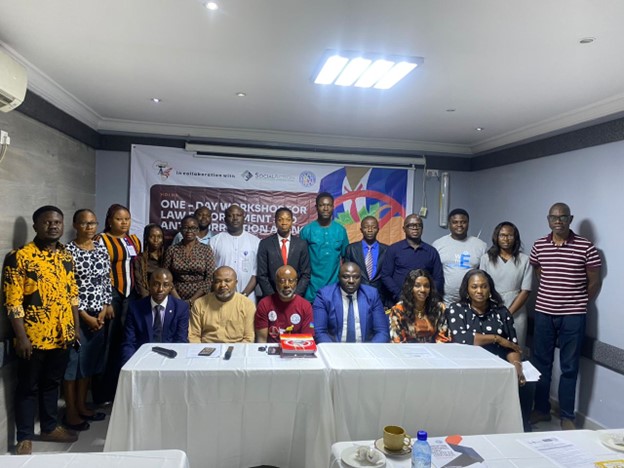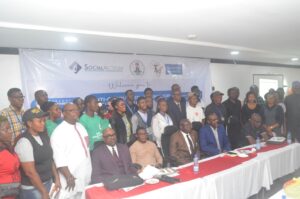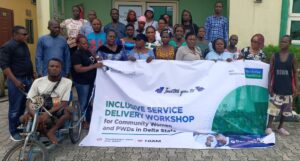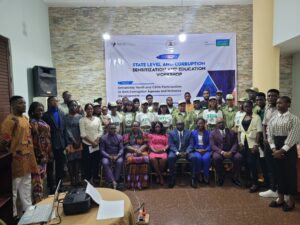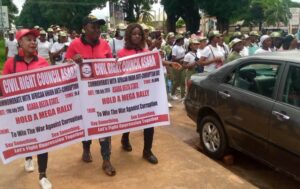Social Action, AFRICMIL push the Bar of Anti-Corruption and Accountability at Subnational Level through Whistleblowing and Whistleblower Protection
Media Report: Workshop on Strengthening Whistleblower Protection in Nigeria
The African Centre for Media and Information Literacy (AFRICMIL), in partnership with Social Development Integrated Centre (Social Action), and with support from the MacArthur Foundation, convened a critical workshop on Thursday, August 8, 2024, aimed at enhancing Nigeria’s whistleblowing practices and advancing the fight against corruption. Held at Visa Karena Hotels and Suites in Port Harcourt, Rivers State, the workshop attracted key stakeholders, including representatives from law enforcement agencies, civil society organizations (CSOs), and government officials.
Dr. Chido Onumah, Coordinator of AFRICMIL, set the tone for the event, emphasizing the organization’s unwavering commitment to promoting media literacy and anti-corruption initiatives. He highlighted the significant challenges faced by whistleblowers in Nigeria, particularly the lack of a robust legal framework to protect them from retaliation. Dr. Onumah noted that while the initial excitement surrounding whistleblowing in Nigeria led to some successes, the absence of legal protections has resulted in a decline in reports, undermining the country’s anti-corruption efforts. He urged for the establishment of a comprehensive whistleblower protection law, drawing attention to successful models in countries such as Ghana, South Africa, Uganda, the United Kingdom, and the United States.
Mercy Anino, Acting Executive Director of Social Action, underscored the urgent need for a whistleblower protection law in Nigeria. She cited the devastating impact of corruption on national governance, as evidenced by recent nationwide movements like the #EndBadGovernance protests. Anino called for collective action to eradicate corruption and all forms of wrongdoing in Nigeria, stressing that such efforts are crucial for the nation’s progress.
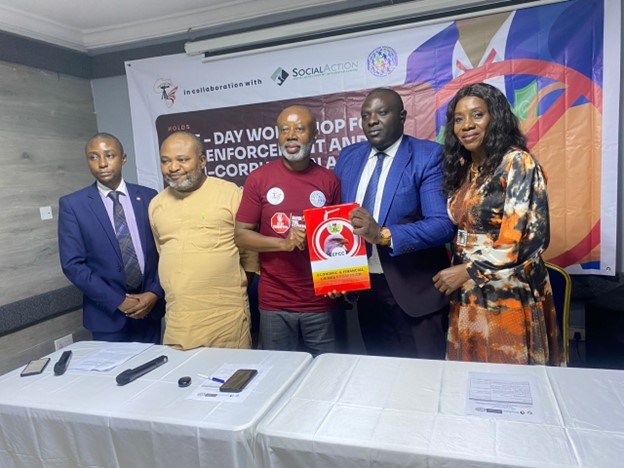
The workshop featured in-depth presentations that shed light on the current state of whistleblowing in Nigeria. The first paper, titled “Understanding Nigeria’s Whistleblowing Policy,” was presented by Godwin Onyeacholem, Programme Manager at AFRICMIL, on behalf of Johnson Oludare. The presentation emphasized the importance of building public trust in Nigeria’s whistleblowing policy to ensure its effectiveness. Onyeacholem highlighted how the policy, which offers rewards and protection to whistleblowers, has led to significant recoveries of illicit funds, particularly in 2017 and 2020. However, he stressed that for the policy to continue delivering results, it must be supported by strong legal frameworks.
The second paper, delivered by Barrister Arochukwu Paul Ogbonna of Social Action, focused on “The Need for a Whistleblower Protection Law in Nigeria.” Ogbonna examined the role of anti-corruption and law enforcement agencies, including the DSS, EFCC, ICPC, NIS, NAPTIP, and the Nigerian Police Force, in implementing the whistleblowing policy. He advocated for a comprehensive legal framework that would provide statutory protection and remuneration for whistleblowers, thereby incentivizing citizens to participate actively in anti-corruption efforts. Ogbonna also highlighted the detrimental impact of corruption on Nigeria’s politics and development, stressing the need for enhanced accountability measures.
The workshop concluded with a consensus on the necessity for stronger collaboration between government authorities, civil society, the media, and legislators to advocate for comprehensive whistleblower protection legislation. Participants agreed that addressing the existing gaps in compensation and legal support for whistleblowers is essential for bolstering Nigeria’s anti-corruption efforts and fostering a more transparent and accountable society.
The event saw active participation from members of civil society, the media, and various law enforcement and government agencies, including the DSS, NIS, NAPTIP, ICPC, and EFCC.

